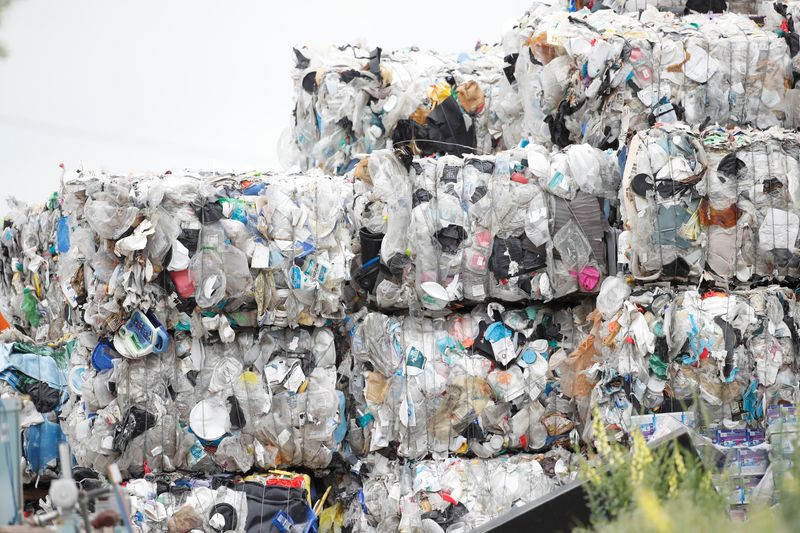By Valerie Volcovici
WASHINGTON (Reuters) – The United States, one of the world’s biggest plastic producers, will back a global treaty calling for a reduction in the amount of new plastic produced each year in a major policy change, a source close to US negotiators told Reuters. Wednesday.
The change from previous calls to leave such decisions up to each country puts the US in direct opposition to countries like Saudi Arabia and China.
These countries have argued that the hoped-for United Nations treaty, which negotiators will conclude at a summit in Busan, South Korea, in November, should ignore issues of production and focus on downstream measures such as encouraging recycling and changing packaging design.
The talks in Busan will take place after the US presidential election on November 5, which will pit Vice President Kamala Harris against former President Donald Trump.
Trump has previously shunned global environmental treaties and withdrew the US from the UN Paris climate treaty.
COUNTRIES WITH HIGH AMBITION
The policy change also aligns the US more closely with a group of so-called high-ambition countries, including EU member states, South Korea, Canada, Rwanda and Peru, which has called for a global plastics treaty to limit and phase out plastic production to be phased out. plastic.
The group has also focused on a list of environmentally harmful chemicals used in plastic production that should be eliminated.
The US now also supports work on establishing a possible global list of chemicals on which obligations could be developed to avoid a “patchwork” of different national requirements, and to establish global criteria to determine what should be included in a list of “avoidable plastic products” should be included. to be phased out, the source said.
The debate over whether a UN treaty should seek to limit the amount of plastic produced pushed the latest round of negotiations in Ottawa into April, with major plastic and petrochemical producers such as Saudi Arabia and China blocking further negotiations on production caps. arguing that countries should focus on less controversial issues, such as plastic waste management.
The EU and other parties have expressed concern that continued divisions between countries over the scope of the treaty will make it difficult to conclude negotiations in Busan.
They launched an effort during the Busan talks, called the ‘Bridge to Busan’, to keep plastic production targets ‘alive’ in the treaty text. The source did not say whether the US would support the effort.
The White House informed stakeholders on Wednesday about the shift in position “which increases ambition,” the source said.
The change in stance drew criticism from industry groups and cautious praise from environmental groups.
The American Chemistry Council said the shift indicates the Biden administration has “caved in” to the wishes of environmental groups. The ACC supports a global treaty, but does not support ceilings or lists of chemicals to be controlled.
“With the current shift in position to support plastic production caps and regulate chemicals through the UN Plastics Agreement, the White House has signaled its willingness to betray American manufacturing and the hundreds of thousands of jobs it supports,” said Chris Jahn , President of the UN. ACC.
Greenpeace called the shift a “turning point” in the fight against plastic pollution.

“It’s a welcome sign that they are finally listening to the demands of the American people,” said John Hocevar, campaign director for Greenpeace USA Ocean.
The changes come ahead of a meeting in Bangkok, parallel to ongoing treaty negotiations later this month and after the US last month laid out new policies to tackle plastic pollution.


